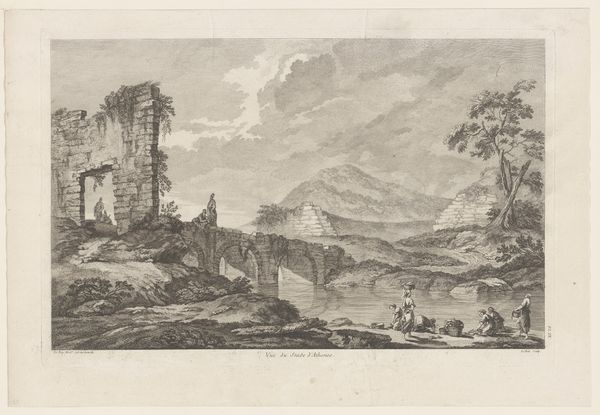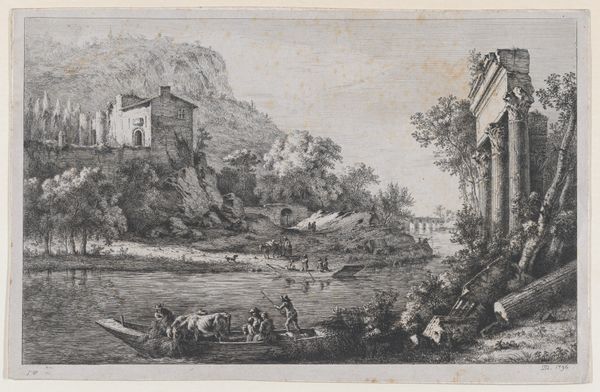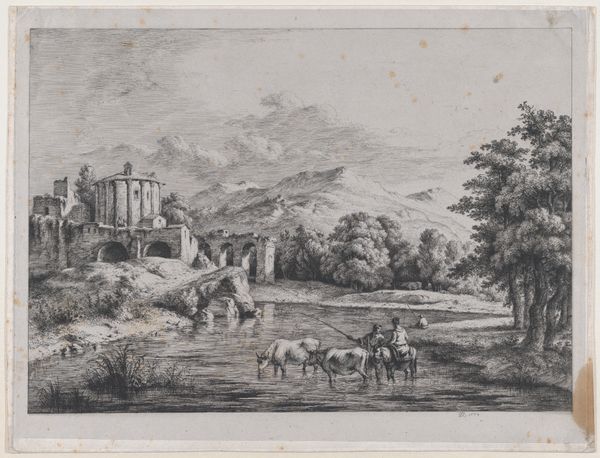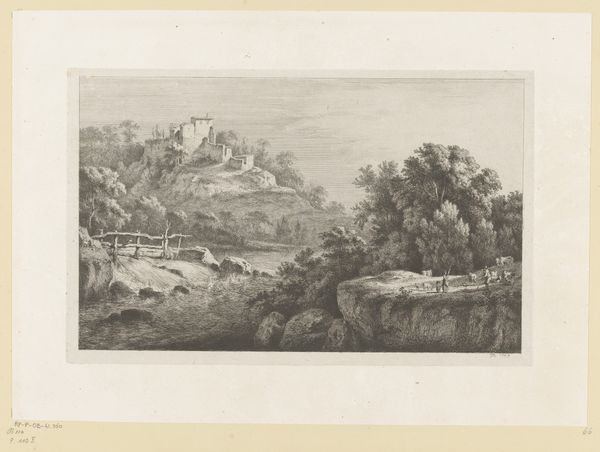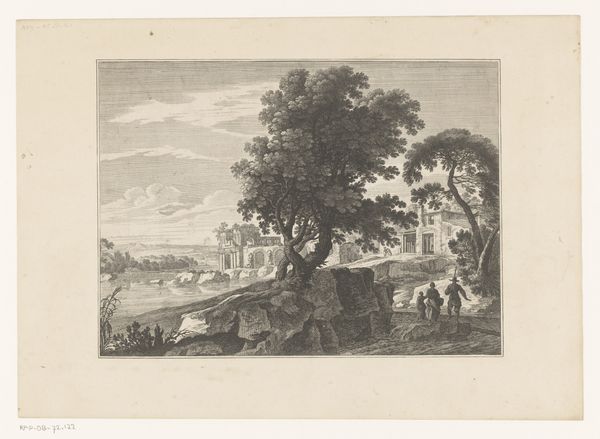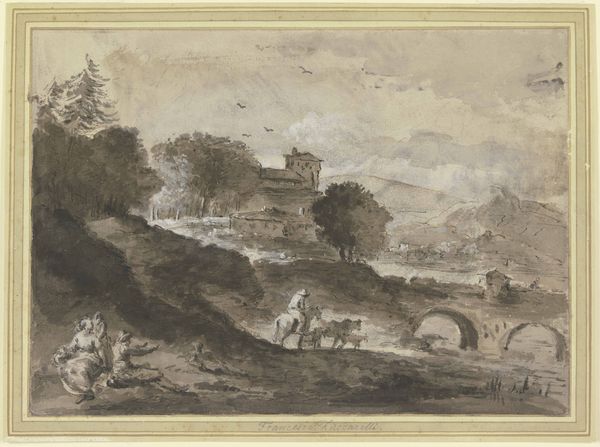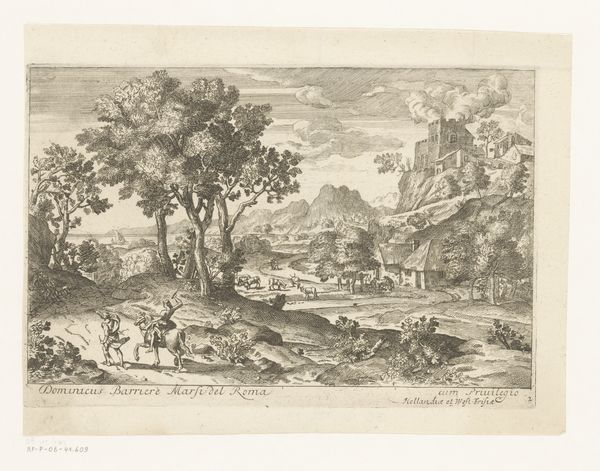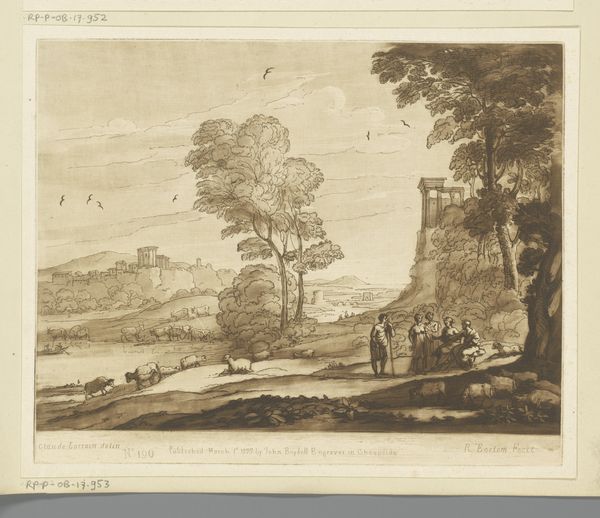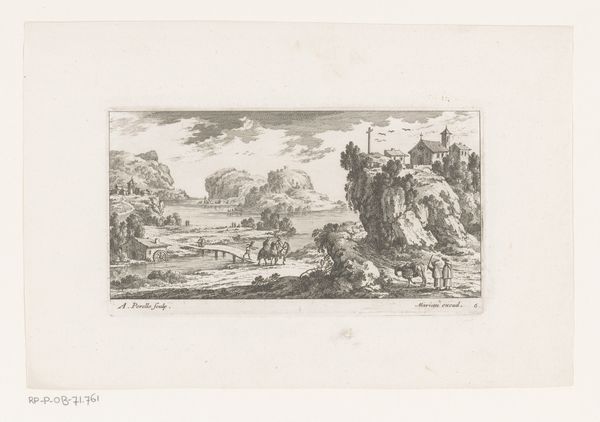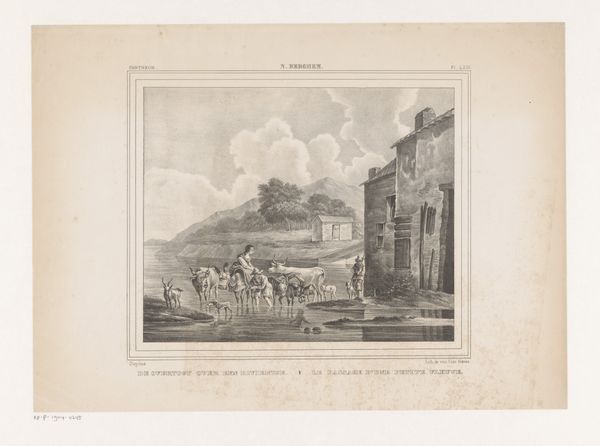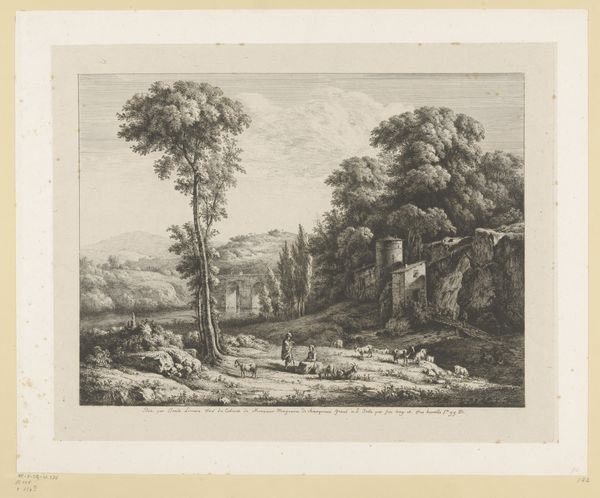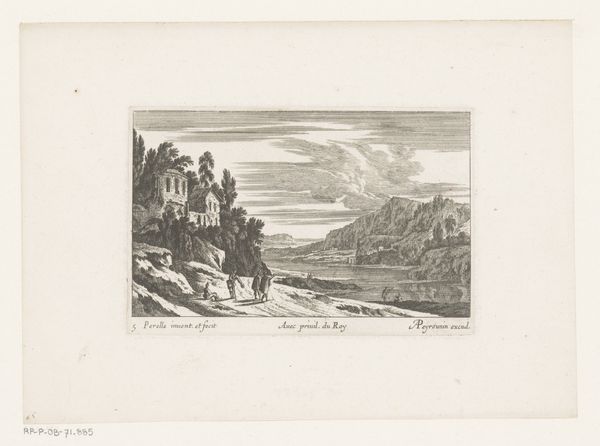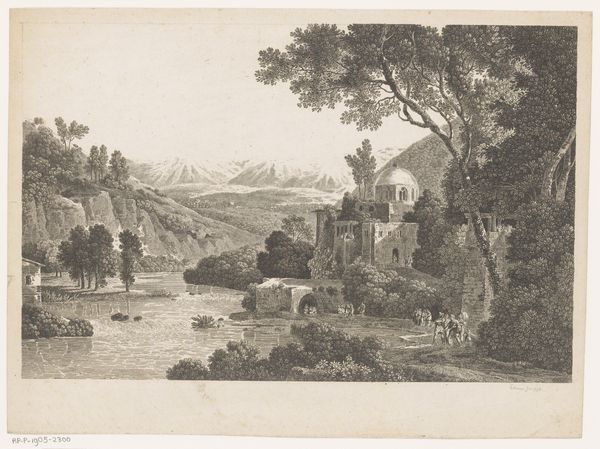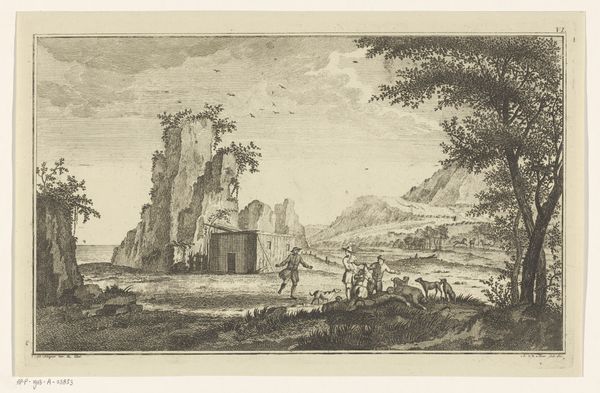
print, etching
#
aged paper
#
toned paper
# print
#
etching
#
old engraving style
#
landscape
#
classical-realism
#
history-painting
Dimensions: height 338 mm, width 446 mm
Copyright: Rijks Museum: Open Domain
Editor: We’re looking at “Figuren in een rivierlandschap voor de tombe van Caecilia Metella” from 1797 by Jean Jacques de Boissieu. It's an etching, rendered in these delicate lines that give it an almost dreamlike quality. I’m really drawn to the contrast between the looming historical structure and these everyday people on the riverbank. What stands out to you? Curator: This etching offers us a window into how the past was being perceived and consumed in the late 18th century. The Tomb of Caecilia Metella, a symbol of ancient Rome, is positioned almost as a backdrop to a scene of contemporary life. Note how de Boissieu chose to represent it: partially ruined, picturesque. Why do you think that is? Editor: Well, it seems to invite reflection. Not just on Roman grandeur but on the passage of time and the changes to social structure? Curator: Precisely! The ruin became a fashionable trope, prompting viewers to reflect on history, progress, and perhaps, even the impermanence of power. The figures in the foreground – the common people – juxtaposed with this powerful ruin create a visual commentary. Think about how this imagery might function in shaping national identity or even critiquing contemporary social norms. Who are the intended viewers, and what is being communicated to them by placing those figures so close to the water's edge? Editor: That’s fascinating! So, the placement of these everyday figures isn’t just about the composition, but also about the dialogue between past and present and social commentary? I didn't consider the political implication! Curator: Exactly. Art doesn't exist in a vacuum; it is embedded in, and often actively shaping, the cultural and political landscape of its time. Editor: I never thought about prints having such political implications, It certainly gives a different view on such prints and paintings and landscapes. Thanks!
Comments
No comments
Be the first to comment and join the conversation on the ultimate creative platform.
